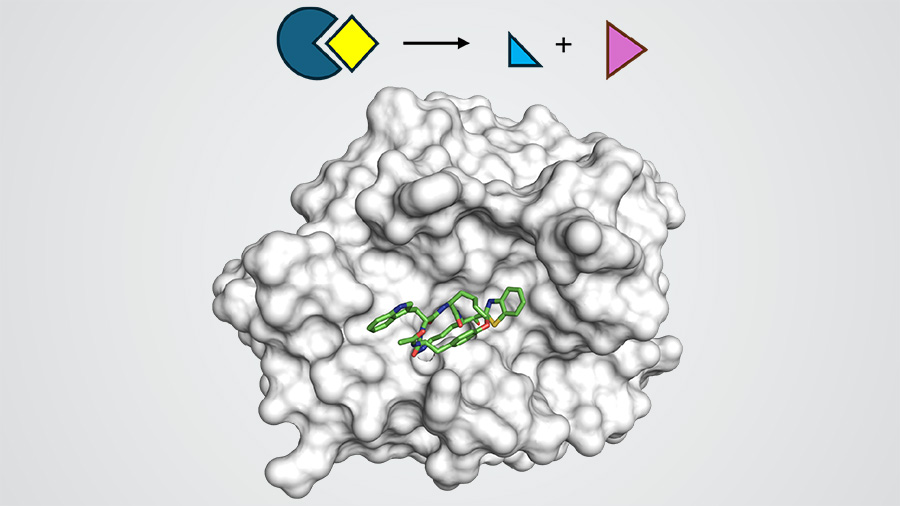Nucleophilic proteases: structure, function, regulation and disease
June 20–21, 2025
Virtual

There are more than 600 proteases in the human genome making it the second largest family of proteins in humans. These proteolytic enzymes are tightly regulated and function by performing post-translational protein modifications through hydrolysis of peptide bonds which results in activation or deactivation of biological pathways in an enormous array of physiological processes. Dysregulated proteolysis is also implicated in a large, diverse set of diseases including those relating to cardiovascular, immunological and cancer. Furthermore, the pathogenesis of many infectious diseases is mediated by proteases, either from the microbe, the host or both.
These enzymes are classified by their catalytic mechanism into five types: serine, threonine, cysteine, aspartic and metalloproteases. This year we expand upon past meetings by highlighting the most significant recent studies not only on serine, but also on the other classes of nucleophilic threonine and cysteine proteases. The talks organized present aspects of protease biochemistry and biophysics such as structural biology, as well as drug discovery and inhibitor development. Cross-disciplinary topics include cancer, infectious disease (viruses, bacteria, other pathogens), inflammation and immunology, cardiovascular system, and others.
Important dates
| May 31 | Abstract submission deadline |
|---|---|
| May 31 | Early registration deadline |
| June 18 | Regular registration deadline |
Organizers
 Torsten Steinmetzer
Philipps University of Marburg
Torsten Steinmetzer
Philipps University of Marburg
Abstracts
Registration for the conference is required at the time of abstract submission.
Abstract submission guidelines
- Abstract title field allows 200 characters maximum.
- Abstract body field allows for 350 words maximum (not including authors and affiliations).
- Text may be typed or copied and pasted into the abstract title and body fields.
Registration
ASBMB members will receive a $50 discount on their registration fee which will be applied during checkout. Not a member? Join ASBMB and save!
| Early registration (by May 31) |
Regular registration (by June 18) |
|
|---|---|---|
| Regular, industry | $300 | $350 |
| Early-career | $200 | $250 |
| Graduate, undergraduate, affiliate | $75 | $125 |
NOTE: Registration is on a first come, first served basis and will remain open until capacity is reached. This may mean that the conference registration closes before the officially posted registration deadline. To secure your spot at the conference, we encourage you to register early.
How to submit an abstract
ASBMB members
- Click “Submit Abstract" button.
- Enter the email address associated with your ASBMB member profile. (Don't remember the email associated with your member record? Contact membership@asbmb.org before proceeding.)
- Once your email address is validated by the system, enter the password associated with your ASBMB member profile. (Don't remember your password? Click "Forgot your password?" to have your password emailed to you. Check your junk mail and spam filter if you do not see the reminder email in your inbox.)
- Do NOT create a new profile if you do not remember either the email address or the password associated with your ASBMB membership account. Contact membership@asbmb.org and request this information prior to submitting.
- Select the, "Submit and Continue" button at the bottom of the page.
- Select the "Submit Abstract" button to enter your abstract submission.
Non-members
- Click “Submit Abstract" button.
- Click the "Create an ASBMB Account" button to set up your user profile.
- Complete the profile fields and select the, "Submit and Continue" button at the bottom of the page.
- Select the "Submit Abstract" button to enter your abstract submission.


